The Importance of Getting to School on Time (and Resources to Help Make it Happen)
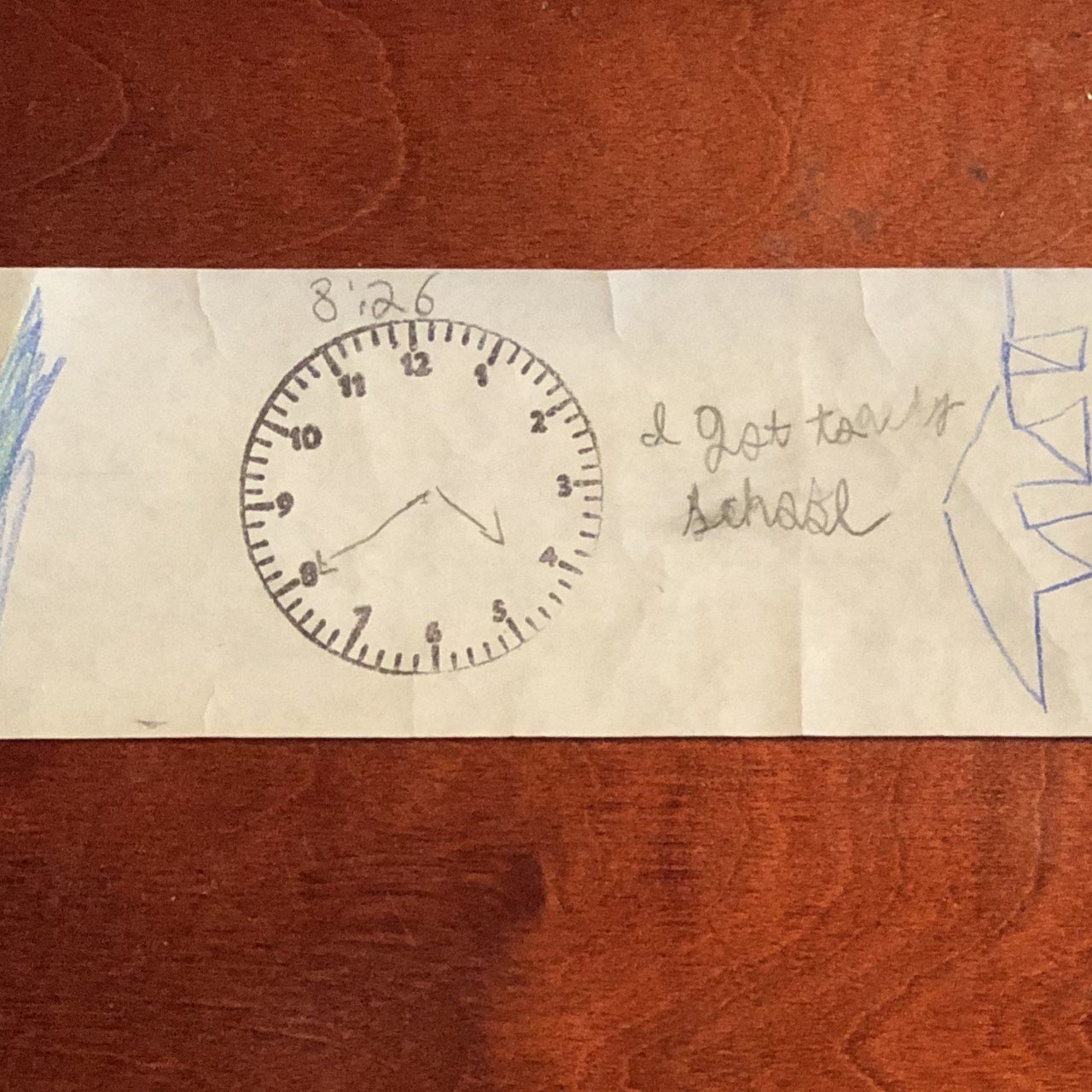 Everyone is tardy sometimes. The occasional unexpected rough morning, spilled smoothie, flat tire or forgotten lunch box—these will happen to each of us. It's when those mornings go from occasional and unexpected to frequent and routine that tardiness becomes... well, a problem.It's easy to list the reasons punctuality is essential to the work- or school-day in general, but let's talk about why it is especially important in the Montessori classrooms.
Everyone is tardy sometimes. The occasional unexpected rough morning, spilled smoothie, flat tire or forgotten lunch box—these will happen to each of us. It's when those mornings go from occasional and unexpected to frequent and routine that tardiness becomes... well, a problem.It's easy to list the reasons punctuality is essential to the work- or school-day in general, but let's talk about why it is especially important in the Montessori classrooms.
The Environment
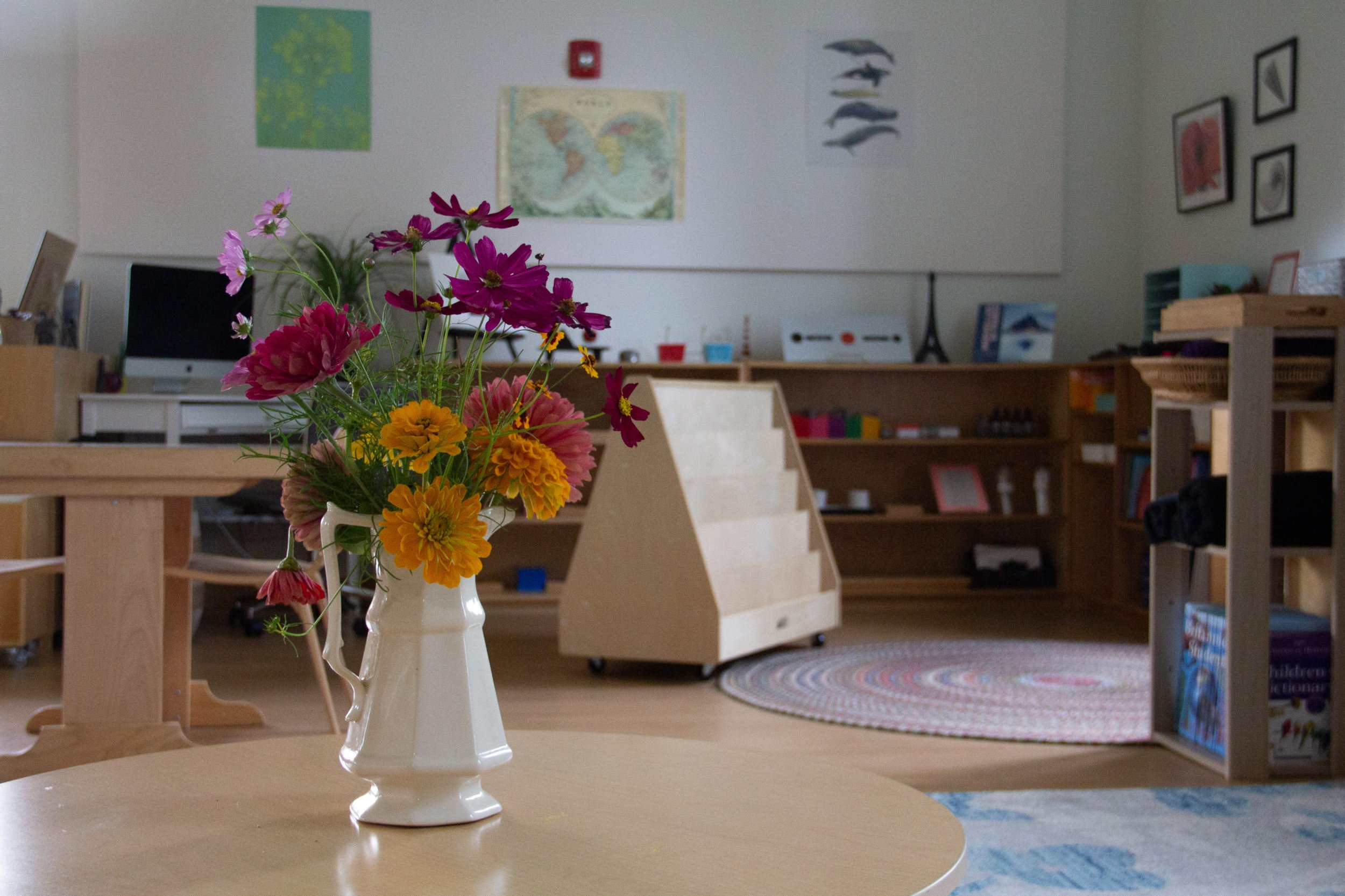 photo credit: Melinda SmithAt the end of each school day, our students, guides and assistants reset the classroom environments, cleaning and restoring for the next day. In the mornings, the environments welcome the children with calm and the sense of everything-in-its-place. For the youngest children, this feeds an inherent sense of order and puts them at ease. For all children, the organization of the space reduces stress and anxiety and facilitates motivation to work. Dozens of studies show the positive impacts of an orderly environment on people of all ages... but why am I bringing it up here? Because children can only reap the calming, motivating benefits of an orderly environment when they arrive in their classrooms on time. When they are on time, they enter the room in its renewed state, before the day has begun. They have the chance to take it all in and prepare for the day. They are set up for success.
photo credit: Melinda SmithAt the end of each school day, our students, guides and assistants reset the classroom environments, cleaning and restoring for the next day. In the mornings, the environments welcome the children with calm and the sense of everything-in-its-place. For the youngest children, this feeds an inherent sense of order and puts them at ease. For all children, the organization of the space reduces stress and anxiety and facilitates motivation to work. Dozens of studies show the positive impacts of an orderly environment on people of all ages... but why am I bringing it up here? Because children can only reap the calming, motivating benefits of an orderly environment when they arrive in their classrooms on time. When they are on time, they enter the room in its renewed state, before the day has begun. They have the chance to take it all in and prepare for the day. They are set up for success.
The Community
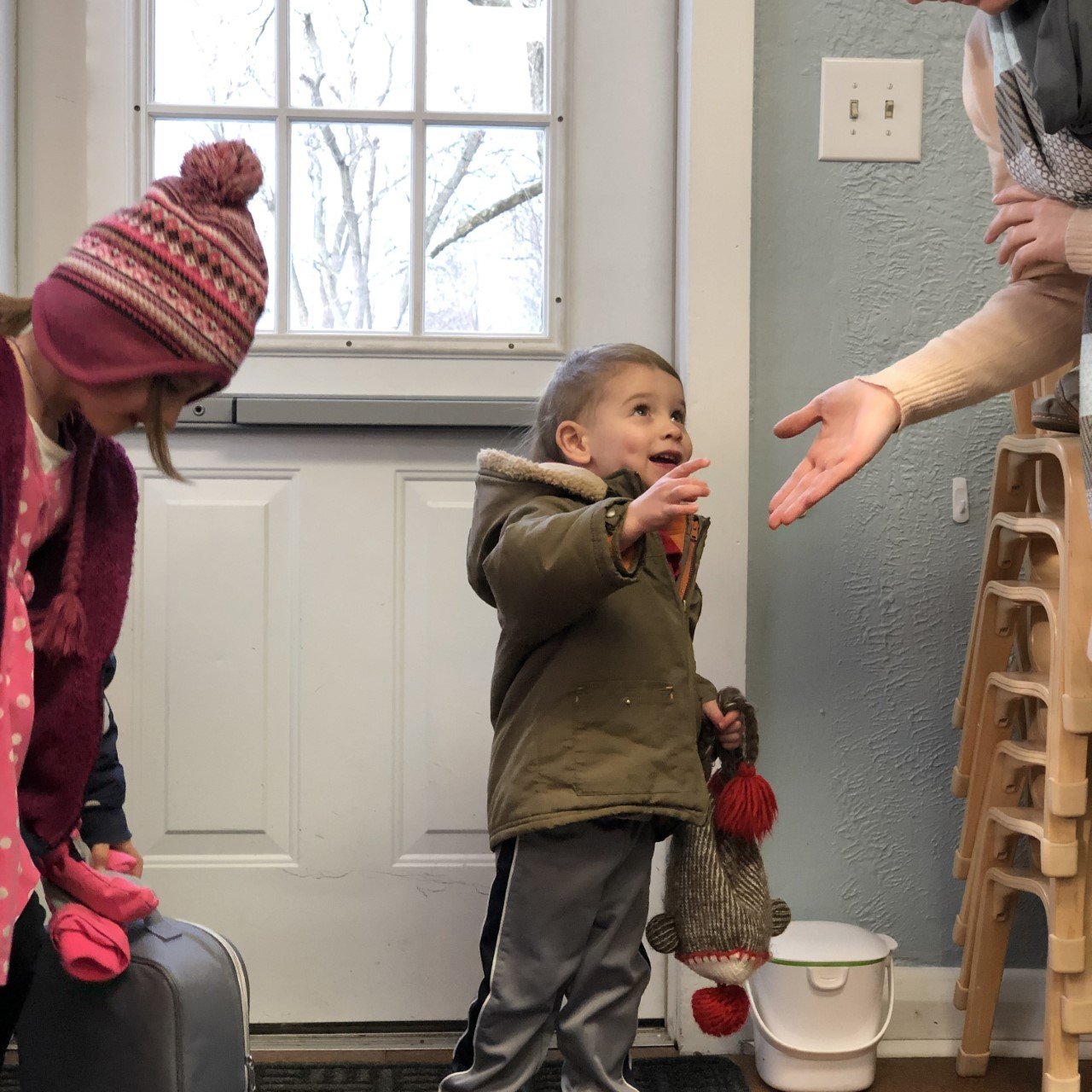
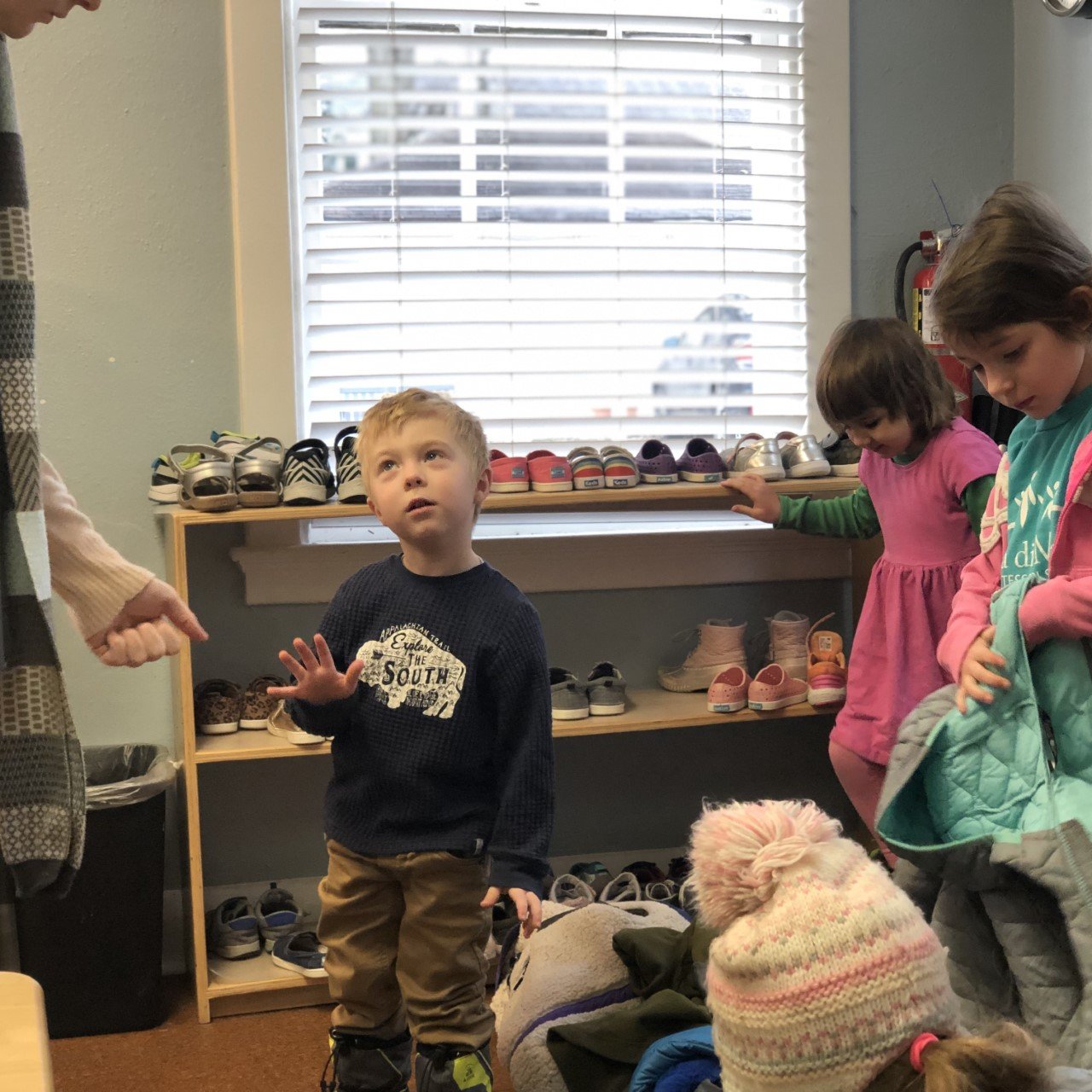 Another benefit of arriving on time is the chance the children have to connect with the adults and other children in their environment. During the window of time dedicated to arrival, each child is met at the door by the guide with a handshake and a warm greeting. They have the chance to personally connect with an anecdote or silly joke. As they chat with the guide and with the other children arriving, they begin their day with the renewed sense of community.
Another benefit of arriving on time is the chance the children have to connect with the adults and other children in their environment. During the window of time dedicated to arrival, each child is met at the door by the guide with a handshake and a warm greeting. They have the chance to personally connect with an anecdote or silly joke. As they chat with the guide and with the other children arriving, they begin their day with the renewed sense of community.
The Three-Hour Work Cycle
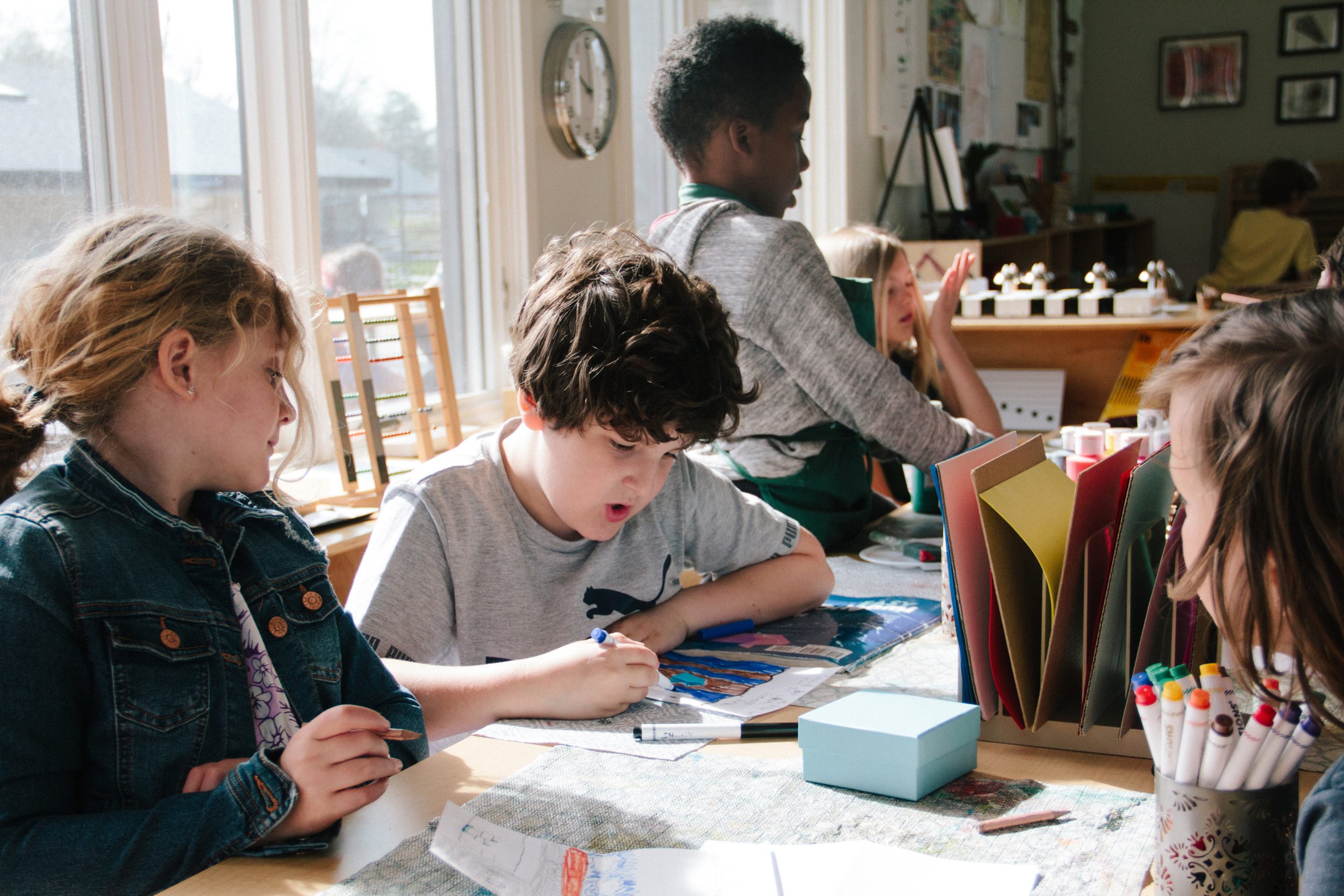 One of the beautiful things that Montessori offers to children is a three-hour uninterrupted morning work cycle. In both the Children's House and the Elementary, the children have from the start of the work day, 8:30 a.m. to the start of lunch, 11:30 a.m. to explore their lessons, dive into their work without unscheduled interruptions. This affords them the opportunities to concentrate, to self-direct and to discover the depths of their own curiosity and intelligence. The three-hour work cycle is bedrock to their Montessori education. And when they arrive on time, they are able to take full advantage of it.
One of the beautiful things that Montessori offers to children is a three-hour uninterrupted morning work cycle. In both the Children's House and the Elementary, the children have from the start of the work day, 8:30 a.m. to the start of lunch, 11:30 a.m. to explore their lessons, dive into their work without unscheduled interruptions. This affords them the opportunities to concentrate, to self-direct and to discover the depths of their own curiosity and intelligence. The three-hour work cycle is bedrock to their Montessori education. And when they arrive on time, they are able to take full advantage of it.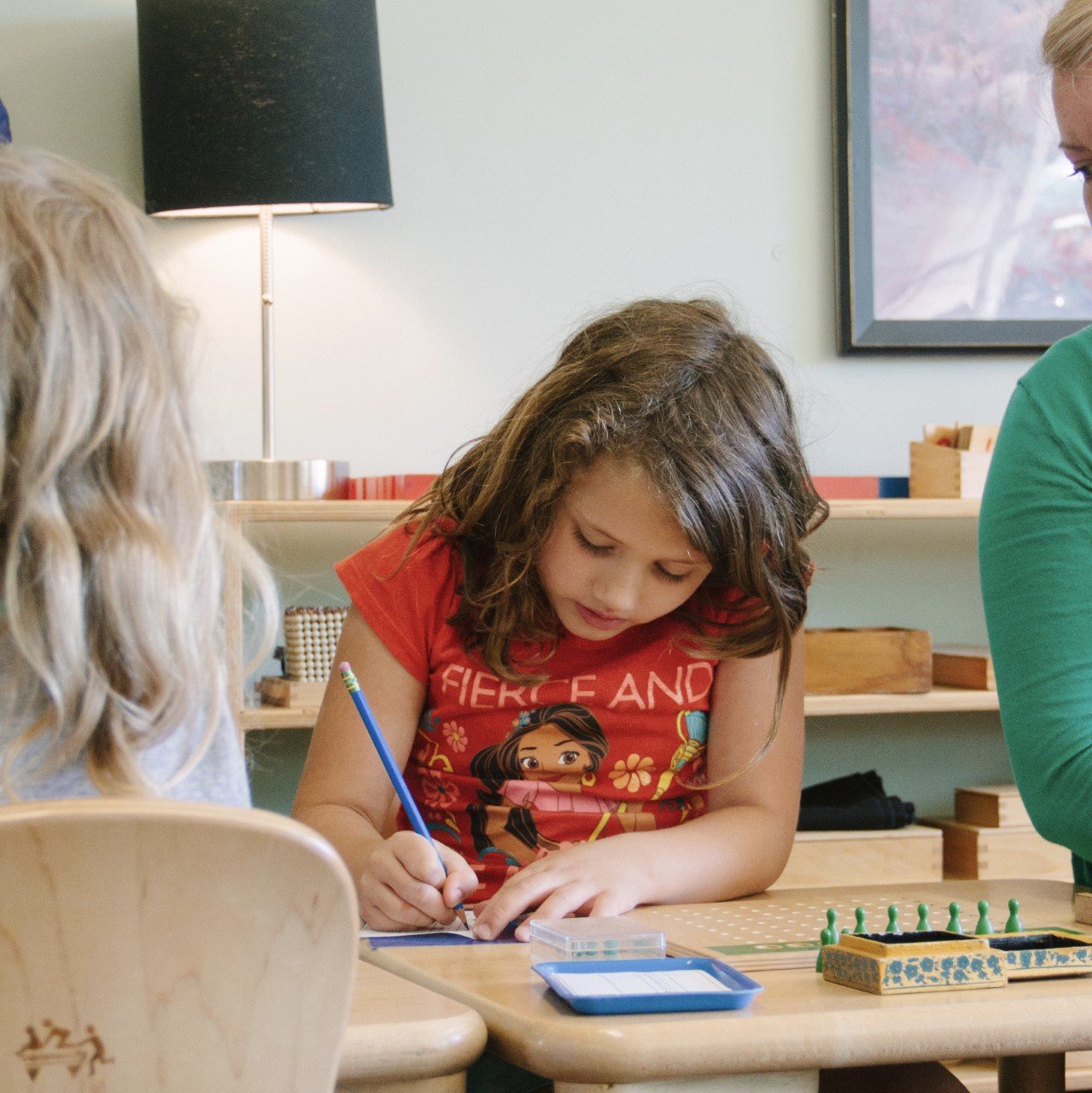 So now that we've looked at all of the beautiful things that happen at the start of the work-day, and why they are so very important to the Montessori classroom, let's drive it on home...
So now that we've looked at all of the beautiful things that happen at the start of the work-day, and why they are so very important to the Montessori classroom, let's drive it on home...
The Dinner Party Analogy
You've likely heard this one if you've attended our orientation evenings, and some version of it is often used by Montessorians to describe the effect of coming in late to the classroom. It goes like this: imagine you've just shown up late to a dinner party. All your friends are seated and eating and in the middle of a good conversation. You still have to put your coat away before you can truly join the party. You're out of sync with your friends, out of sync with the party. It doesn't feel good.That feeling is what children experience when they arrive late to their classroom. They've missed out on the start of the day. That morning calm and order of the environment is not wholly available to them because other children have rolled out the rugs and taken the work off the shelves. The opportunity to start the day with a personal connection with the guide is gone because she is now giving lessons to other children. And the three-hour work cycle has begun; some of the time promised to the child in the Montessori classroom is now lost.
Solutions
In truth, this will be different for everyone. Each family has its own rhythm, its own strengths and weaknesses. But it is vital that the child's timely arrival in the classroom become a priority so that she has the opportunity to fully enjoy and succeed in the school day. Below is a list of fantastic resources to help make timely arrival a reality:
